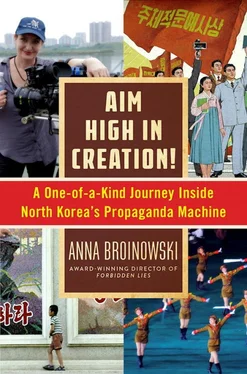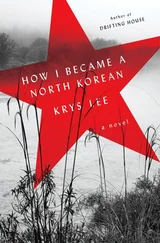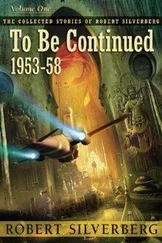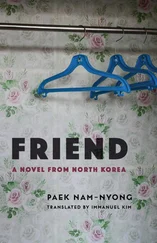It didn’t matter. I wanted to stop CSG, and I needed an idea. So I looked under my bed and found the book exactly where I’d left it. I opened its gold-embossed cover and started to read.
In capitalist society the director is shackled by the capitalist’s money, so that he is a mere worker who obeys the will of the filmmaking industrialists whether he likes it or not. On the other hand, in socialist society, the director is an independent and creative artist who is responsible to the Party and the people for the cinema. Therefore, in the socialist system of filmmaking, the director is not a mere worker but the Commander, the Chief who assumes full responsibility for everything, ranging from the film itself to the political and ideological life of those who take part.
Bingo. A light bulb exploded above my head, and a glorious, revolutionary choir started singing “The People’s Flag” somewhere in the misty, rose-tinted background. Such things happen, in those rare moments when you have an original idea.
Before I’d finished page one, I knew what I had to do.
I had to use Kim Jong Il’s book to make a film so powerful, it would stop the gas mine in Sydney Park.
Thanks to the prodigious wisdom of Comrade Kim Jong Il and his warm loving care, the cinematic art of Korea is now coming into full flower to contribute to the cause of the independence of the People.
—GREAT MAN AND CINEMA
KIM JONG IL WAS ONE OF the world’s kookiest dictators. Anecdotes of his weirdness are legion. He stood at five foot two without his platform heels, drank $650,000 worth of Hennessy a year, and was so terrified of flying he travelled in a bulletproof train—airlifting in lobster, Uzbek caviar, Thai papayas, and Danish pork. He kept a “Joy Division” of nubile starlets to entertain foreign dignitaries, owned seventeen palaces and an army of chefs, and employed two hundred women to ensure each grain of rice he ate was the same colour and length. He forced Pyongyang waitresses to have eyelid tucks to appear more Western, and once flew his sushi chef, Kenji Fujimoto, to Beijing because he craved McDonald’s. He only rode white stallions—and after a nasty fall in the 1990s, he put his aides on his painkillers, so he would not be addicted alone. There’s a photograph on the web that backs up the playboy rumours: Kim Jong Il, naked and fat, lounges at a table laden with empty Cognac bottles. He looks post-coital, and not at all photoshopped. Maybe one of his Joy Division babes took the pic.
But Kim Jong Il’s eccentricities obscure a more serious fact: he was a brilliant global strategist. With North Korea’s $20 billion GDP at his disposal, he used body doubles to foil assassination attempts throughout his career. He built up a missile program credible enough to deter the US from dispatching him in the same way it had dispatched his Axis of Evil colleague, Saddam. Kim’s nuclear bargaining chip enabled him to navigate the diplomatic tightrope between trade sanctions and lucrative foreign aid. US Secretary of State Madeleine Albright, the highest-ranking American diplomat ever to meet him, was astonished by his charm and intelligence. The truth is, the man derided on YouTube for his pot-bellied swagger was no buffoon. His rise to the top job, in a supposedly socialist system where inherited power is anathema, was all due to his smarts.
It can’t have been easy. Kim, plump and effeminate, had none of the macho charisma of his father, Kim Il Sung—a man who’d earned the love of his people the hard way, by fighting a bloody war against the occupying Japanese, leading guerrilla armies from camps in Siberia and Mount Paektu to drive them out by 1945. Kim Senior loved as passionately as he fought, siring four sons by two wives, along with a squadron of illegitimate children. Lurking in the shadows of his father’s personality cult, Kim Jong Il, poet, violinist, and film nerd, worked hard to convince the powerful central party he had the cojones to lead. His half-brother and rival Kim Pyok Il was more similar physically and temperamentally to the boisterous Kim Il Sung. So Kim Jong Il chose a lateral path to power. As the commander of the country’s stagnating film industry, he skilfully shifted the focus of North Korean propaganda movies from dry, Soviet-style epics extolling the virtues of communism to full-blown celebrations of the heavenly supremacy of Kim Il Sung.
Elevating his dad from mortal to god in the minds of his audiences shored up Kim’s rise through the Party ranks. He took ruthless measures to stay in Kim Il Sung’s good books: when his affair with married actress Song Hye Rim produced a son in 1971, Kim hid the baby in secret villas in Pyongyang, stopping the news from spreading by dispatching Song’s friends and relatives to the Yodeok gulag. By the 1980s, he had become the country’s chief operating officer, or “Party Brain.” In public, he solidified his reputation as Kim Il Sung’s most devoted son, accompanying the president on “on-the-spot guidance” visits to factories and power plants. In private, he worked assiduously to consolidate his influence in government affairs. The strategy paid off: in 1992, despite having no military experience, Kim was named Supreme Commander of the Korean People’s Army. He became chairman of the National Defence Commission (NDC) the following year.
When Kim Il Sung died of a heart attack in 1994, plunging North Korea into years of genuine grief, Kim stayed away from the spotlight, quietly promoting generals loyal to him to strengthen his grip on power. He resurfaced in 1997, when the Workers’ Party of Korea elected him unopposed to take over Kim Il Sung’s position of secretary. In 1998, Kim persuaded the Supreme People’s Assembly to adopt a new constitution, making the role of president unelectable. The dead Kim Il Sung was now president for all eternity—and Kim Jong Il, as chairman of the NDC, held the highest mortal office in the land.
New biographies surfaced, remoulding the arty Kim into a manly warrior, as befitting his new role as Shining Star of Socialism, Ever Triumphant General, and Highest Incarnation of Comradely Love. In Kim Jong Il: A Life , Kim Il Sung (posthumously) described the Boy General’s unusual start on Paektu, the “sacred mountain of the revolution”:
He grew up in clothes impregnated with powder smoke, eating army rations and hearing shouts of military command. He was upright and full of guts from his boyhood… He was precocious, probably because he grew up under the influence of the guerrillas. Their noble feelings and emotions became rich nourishment for his mind and their mettle as soaring as the peak of Mt. Paektu added flesh and blood to his manly personality.
Kim Jong Il, his biographers enthused, dreamt of being a soldier and sang only military songs at his kindergarten shows. He stayed up late writing patriotic poems for his war-weary father, and always protected children weaker than himself. He was a crack shot with a rifle and a genius at biology, physics, and revolutionary thought. He earned the respect of craggy Soviet generals at age three, when he barred them from entering his humble log cabin, so that Kim Il Sung could finish his supper. Just in case the North Korean people had any doubt about the president’s chubby first-born son being the perfect successor, the Dear Leader’s extraordinary gifts, forged in the revolutionary fire of the liberation war, were hammered home: “During the years of nation building, Kim Jong Il developed his qualities of curiosity, creative thinking, manliness, magnanimity, audacity, courage, confidence, willpower, frugality, simplicity and modesty.”
The revamped Kim was Napoleon, Paganini, and Tiger Woods in one: an expert at everything. He was given credit for the capture of the US spy ship USS Pueblo in 1968, and the axe murder of three US soldiers who chopped down a tree in the Demilitarised Zone (DMZ) in 1975. He was the strategic visionary behind North Korea’s rise to “world-class power,” thanks to his Songun, or military-first policy, which he introduced in 1998. He was a workaholic who slept three hours a day, so devoted was he to advancing the nation. When not designing hydroelectric dams, intergalactic satellites, and fashionable parkas for his people, the Dear Leader wrote six operas, two ballets, one hit song, and four arts manifestos, and became the world’s best golfer. In 1994, he shot eleven holes-in-one, achieving a score twenty-five points better than the best player in history. In 2004, concerned that university students needed a quick way to stay nourished, Kim invented the “meat with two breads sandwich”—otherwise known as the hamburger. And to top it all off, the Dear Leader was a Sensitive New Age Guy: “Comrade Kim Jong Il is more kind-hearted and has more tears than others. When his beloved soldiers die, he mourns more bitterly than anyone else. He even skips his meals and remains wakeful at night.”
Читать дальше












